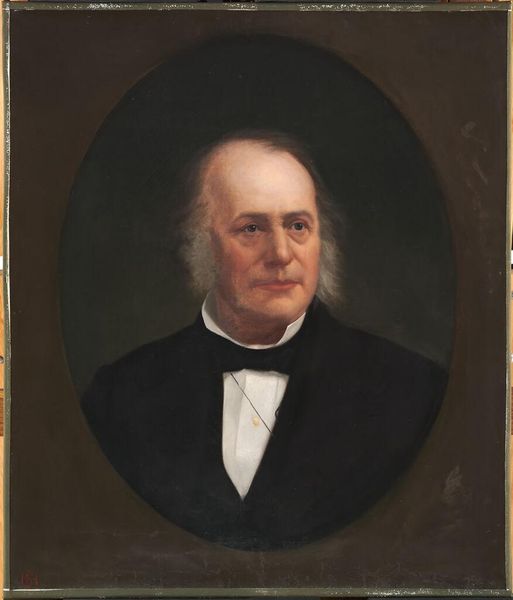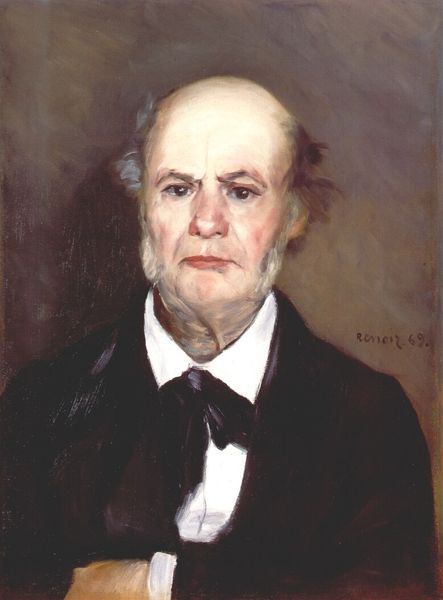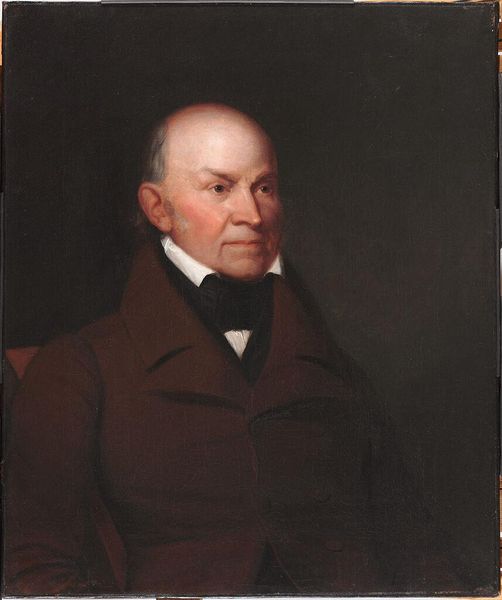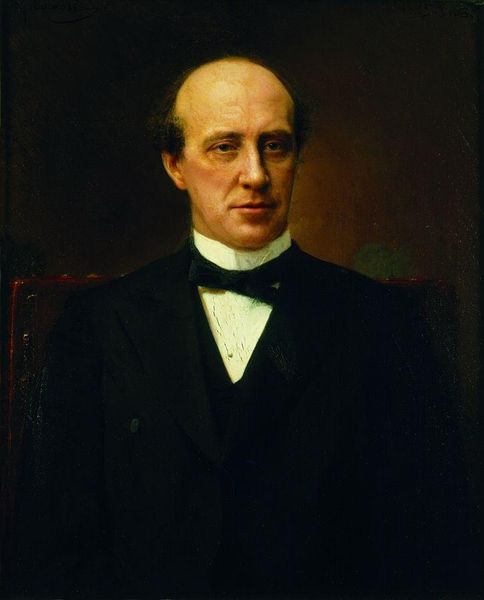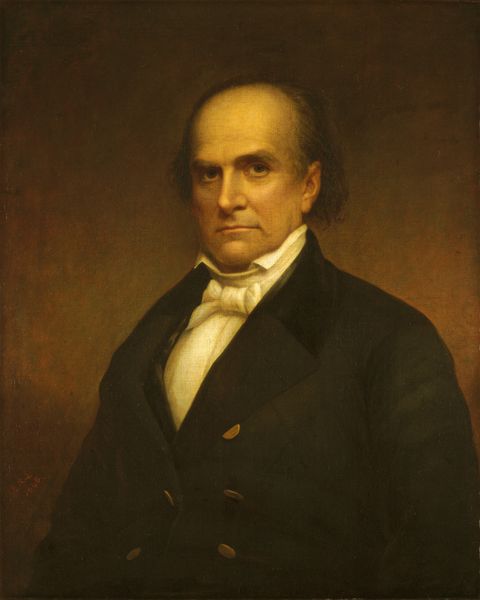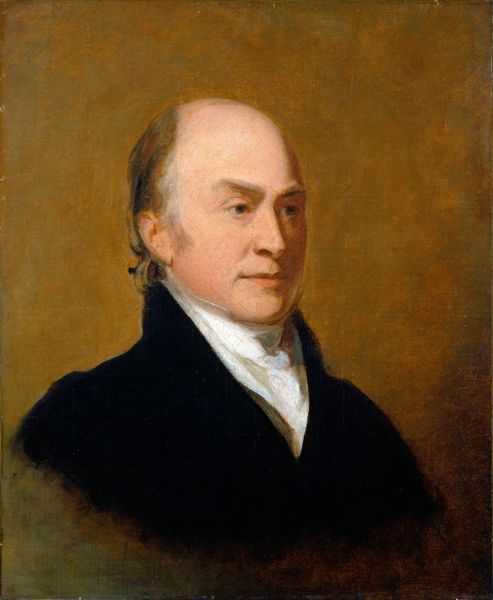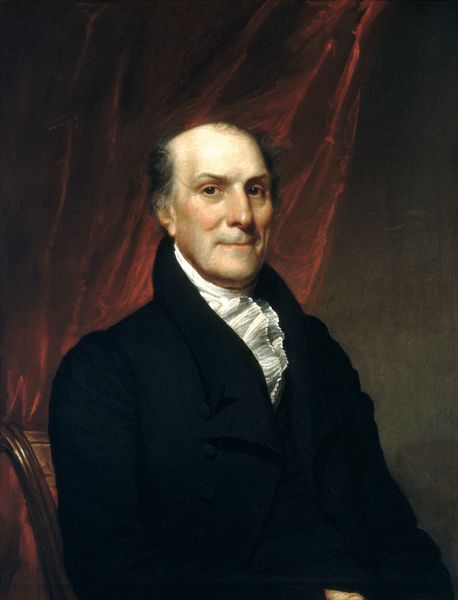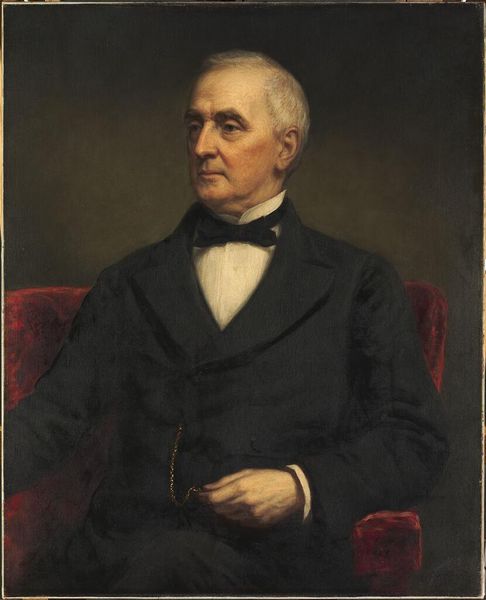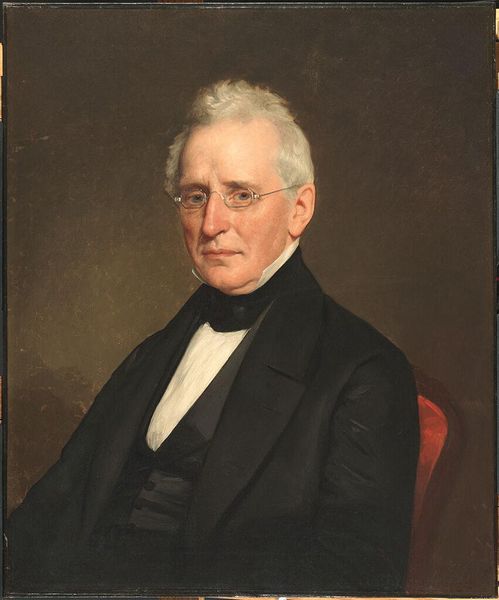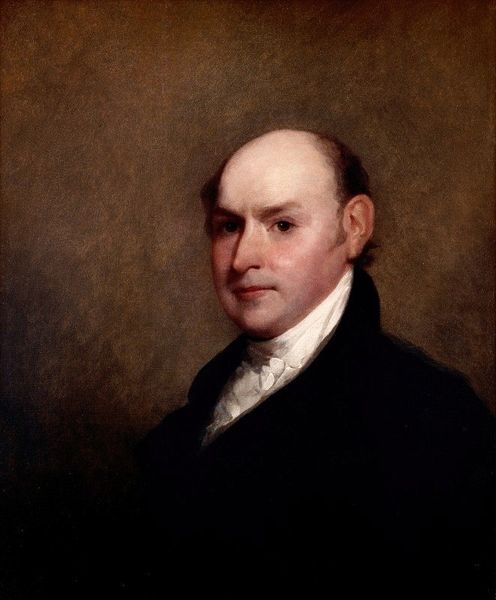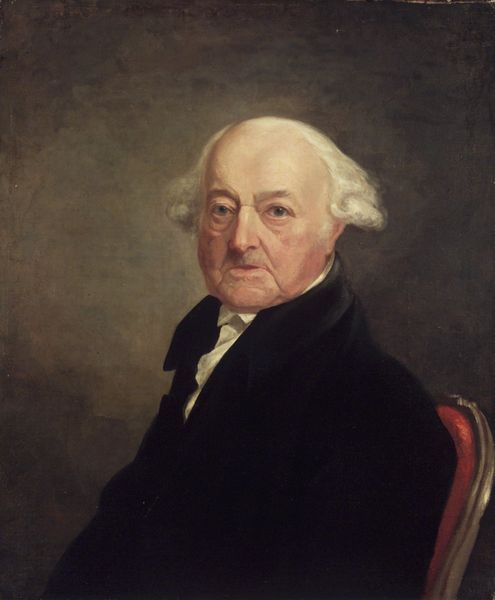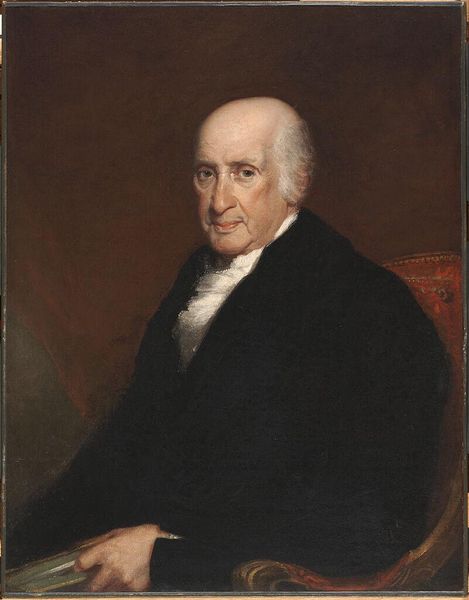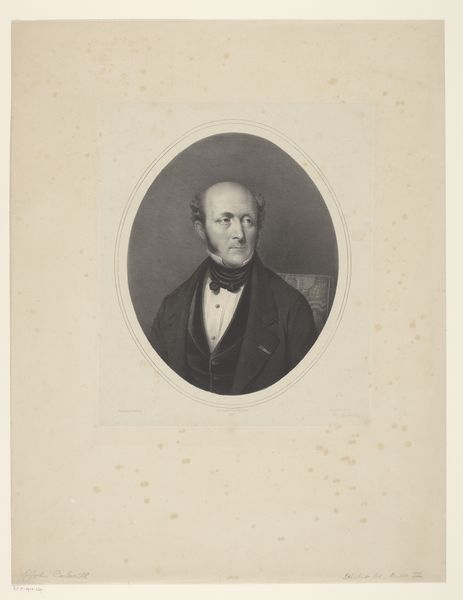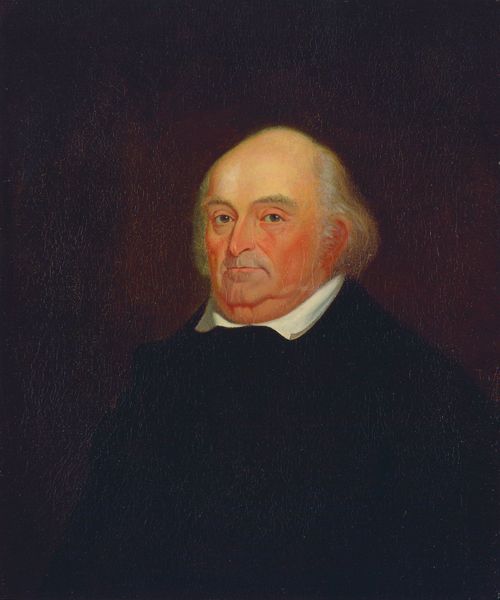
painting, oil-paint
#
portrait
#
painting
#
oil-paint
#
hudson-river-school
#
history-painting
#
realism
Copyright: Public domain
George Caleb Bingham captured this portrait of John Quincy Adams, though the exact date remains unknown. Bingham, living from 1811 to 1879, painted during a period of significant social and political change in the United States, including debates over slavery and westward expansion. Bingham’s portrait freezes Adams in a moment of contemplation, his expression a mix of determination and weariness. As a former president and abolitionist, Adams was a complex figure navigating a deeply divided nation. Bingham, as a Missourian, had a conflicted relationship with these issues, at one time even supporting slavery, and his approach to portraiture often reflects the nuances and tensions of American identity during this era. Portraits like these played a crucial role in shaping public perception and solidifying the legacies of political leaders. Adams's steely gaze and formal attire speak to the weight of leadership and the burden of history. They invite us to consider how the legacies of leaders like Adams continue to shape our understanding of American identity and political discourse.
Comments
No comments
Be the first to comment and join the conversation on the ultimate creative platform.
